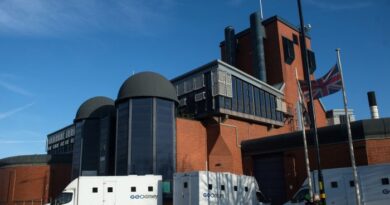Protest Law in NSW Targets Blocking Trains
There is a high likelihood that protesters will block the world’s biggest coal port, prompting the NSW Government to push new anti-protest laws through Parliament.
A planned climate protest may result in a blockade of rail lines to the world’s largest coal mine at Newcastle, leading the New South Wales State (NSW) government to introduce a specific offence covering such actions.
While protesters who block trains already face up to two years in jail, there is no added threat of a fine for obstructing a road, bridge, port, or other major facility.
Labor plans on introducing legislation that would add a fine of up to $22,000 to the possible penalty, applying to railway lines and light rail lines across the state, where protesters often gather.
Despite NSW Police winning a case in the state Supreme Court allowing them to deny approval for the event, climate action group Rising Tide intends to proceed with a “People’s Blockade of the World’s Largest Coal Port” at the Port of Newcastle.
Authorized protests are protected from prosecution, but police can apply to the court to deny a permit to rally organizers, as they did in this case, citing safety concerns, interference with the rights of other members of the public to use the space, and disruption to the coal industry.
Justice Desmond Fagan issued a prohibition order, meaning the protesters will not be protected from being charged with obstruction and unlawful assembly offences.
4-day ‘Protestival’ Will Go Ahead, Protesters Say
Rising Tide stated that the protest will still take place later this month, involving activists paddling into the port on kayaks and rafts to prevent coal exports from leaving for 30 hours. This, along with a four-day “protestival,” is expected to attract as many as 5,500 people.
“We have a right to assemble on public land and water, and we will exercise that right because it is critical for democracy,” said Rising Tide’s organizer, Zach Schofield.
NSW Premier Chris Minns emphasized that adding fines to potential penalties faced by protesters would send a message that blocking railway lines is unacceptable.
“Protests on railway lines are seriously dangerous and disruptive, and they are not tolerated in NSW,” he stated.
Attorney-General Michael Daley mentioned that the proposed change was about “balancing the right to protest with keeping the community safe and free from disruption.”
The tough anti-protest laws have faced criticism, including from within the state Labor Party and the union movement. Some earlier legislation, passed with the support of both major parties in 2022, was declared invalid by the Supreme Court last year.
NSW Greens MP Kobi Shetty has a Bill before Parliament to repeal the offences.
AAP contributed to this story.



